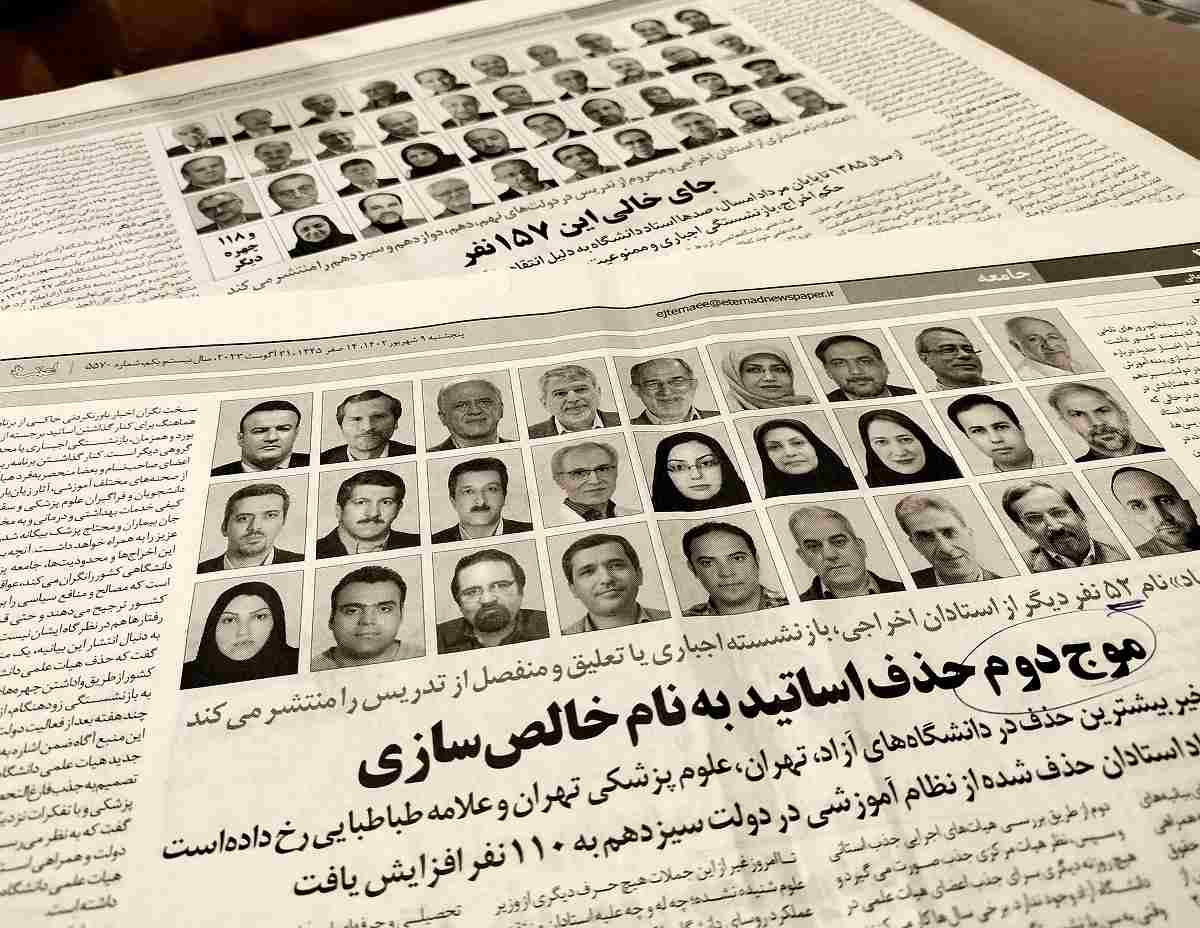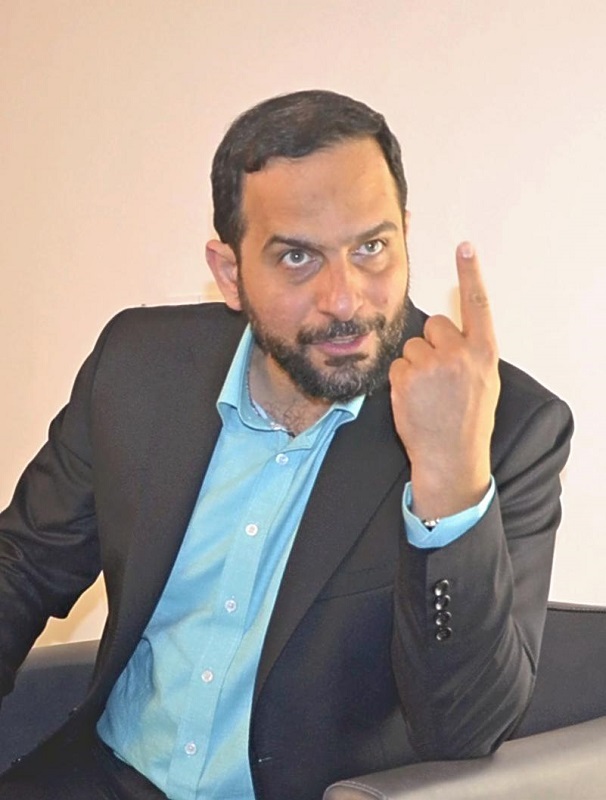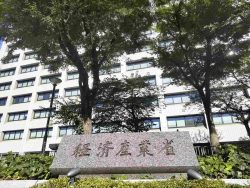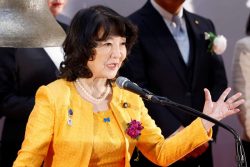Iran – 45 Years Since the Revolution / Iran Purges Universities of ‘Dissident’ Profs; Moves Said to Echo Khomeini-Era ‘Cultural Revolution’

Copies of August issues of the Etemad newspaper with photos of professors who were dismissed from their posts.
7:00 JST, February 28, 2024
This is the second installment of a series examining the current state of Iran’s “revolutionary regime,” which pushes back against public discontent with hardline policies.
***

University of Tehran Assistant Prof. Mohsen Borhani is among the many academics who have been suspended.
University of Tehran Assistant Prof. Mohsen Borhani, 45, could not believe what a university staff member told him in July when he happened to meet her on the main street in front of the university.
“I’m sorry to hear about your suspension. My condolences,” she said.
He went to the faculty office, where he was shown a notice of suspension of his employment that had been issued 10 days earlier. He was told it was an admonition from the university’s disciplinary committee.
“I hadn’t heard anything about it,” Borhani, who was in the prestigious university’s Criminal Law Department, said, although he had known what to expect.
Borhani had been in the spotlight across Iran for criticizing the regime after its execution of protesters in the 2022 mass protests against the compulsory wearing of hijab head scarves for women. He called the government’s action “illegal” in a public dialogue.
He also learned that he had been charged by the committee with “propaganda against the Islamic regime.” He is still on trial now. Borhani said angrily, “The regime is ‘cleansing’ its critics.”
‘2nd Cultural Revolution’
At universities across Iran, students who participated in the protests on campus were suspended from school, and professors who appealed for redress were dismissed or suspended from their positions across the board.
The reformist newspaper Etemad reported that at least 110 university professors have been dismissed since President Ebrahim Raisi took office in August 2021.
University of Tehran Prof. Sadegh Zibakalam, 75, who was dismissed from his position, called the current situation a “second Cultural Revolution.”
The “first” Cultural Revolution occurred following the Iranian Revolution when supreme leader Ruhollah Khomeini in March 1980 ordered reforms of the environment in which those calling for the restoration of monarchy and those espousing leftist ideology struggled for power in Iran’s universities. As a result, 8,000 counter-revolutionary professors and students were dismissed in the name of the revolution, and universities across Iran were closed for three years. The Islamization of universities got underway.
Zibakalam, in the Law Department, continued to teach at the request of the department and students after his retirement.
However, his department head explained that his dismissal was unavoidable because it was the policy of the university’s internal security department.
Fear of internet
The regime fears the spread of Western and anti-Islamic influences in society. The spread of criticism of the revolution and the regime via the internet or social media could shake the government.
A bill mandating the head coverings, currently under review for unconstitutionality, imposes hefty fines for collaborating with international forces and spreading anti-hijab sentiment via the internet.
Before the 1979 Islamic Revolution, cassette tapes of speeches by the exiled Khomeini were brought into Iran to be disseminated underground. They had a profound impact on the anti-monarchy movement. Today’s dissidents are using the internet and social media instead of cassette tapes.
Mohammad-Ali Abtahi, 64, who served as vice president in the 1997-2005 administration of reformist President Mohammad Khatami, was the first politician to start blogging in Iran.
“Iranian society can keep pace with the rest of the world through the internet and social media,” he said. “Challenges that used to be handled by religion are now being met by science. The influence of religion should be minimized, not maximized.”
According to a parliamentary report, 64% of Iranian internet users use software to circumvent government restrictions on browsing. Although it is difficult to block information, the government has responded by ignoring the voices of the people and thoroughly eliminating dissent.
Top Articles in World
-

China Confirmed to Be Operating Drilling Vessel Near Japan-China Median Line
-

China Eyes Rare Earth Foothold in Malaysia to Maintain Dominance, Counter Japan, U.S.
-

Japan, Qatar Ministers Agree on Need for Stable Energy Supplies; Motegi, Qatari Prime Minister Al-Thani Affirm Commitment to Cooperation
-

North Korea Possibly Launches Ballistic Missile
-

10 Universities in Japan, South Korea, Mongolia to Establish Academic Community to Promote ICC Activities, Rule of Law
JN ACCESS RANKING
-

Univ. in Japan, Tokyo-Based Startup to Develop Satellite for Disaster Prevention Measures, Bears
-

JAL, ANA Cancel Flights During 3-day Holiday Weekend due to Blizzard
-

China Confirmed to Be Operating Drilling Vessel Near Japan-China Median Line
-

China Eyes Rare Earth Foothold in Malaysia to Maintain Dominance, Counter Japan, U.S.
-

Japan, Qatar Ministers Agree on Need for Stable Energy Supplies; Motegi, Qatari Prime Minister Al-Thani Affirm Commitment to Cooperation


























